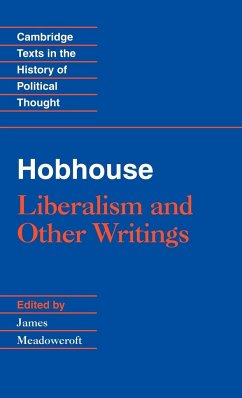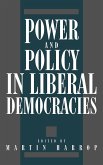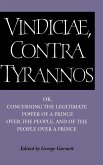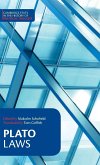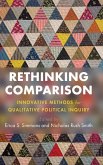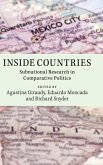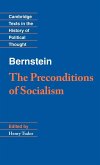- Gebundenes Buch
- Merkliste
- Auf die Merkliste
- Bewerten Bewerten
- Teilen
- Produkt teilen
- Produkterinnerung
- Produkterinnerung
A 1994 edition of the classic work of one of the most important modern British liberal theorists.
Andere Kunden interessierten sich auch für
![Power and Policy in Liberal de Power and Policy in Liberal de]() Martin Harrop (ed.)Power and Policy in Liberal de117,99 €
Martin Harrop (ed.)Power and Policy in Liberal de117,99 €![Brutus Brutus]() Stephanius Jurius BrutusBrutus117,99 €
Stephanius Jurius BrutusBrutus117,99 €![More More]() Thomas MoreMore90,99 €
Thomas MoreMore90,99 €![Plato Plato]() PlatoPlato92,99 €
PlatoPlato92,99 €![Rethinking Comparison Rethinking Comparison]() Rethinking Comparison109,99 €
Rethinking Comparison109,99 €![Inside Countries Inside Countries]() Inside Countries116,99 €
Inside Countries116,99 €![Bernstein Bernstein]() Eduard BernsteinBernstein123,99 €
Eduard BernsteinBernstein123,99 €-
-
-
A 1994 edition of the classic work of one of the most important modern British liberal theorists.
Hinweis: Dieser Artikel kann nur an eine deutsche Lieferadresse ausgeliefert werden.
Hinweis: Dieser Artikel kann nur an eine deutsche Lieferadresse ausgeliefert werden.
Produktdetails
- Produktdetails
- Verlag: Cambridge University Press
- Seitenzahl: 246
- Erscheinungstermin: 28. Oktober 2011
- Englisch
- Abmessung: 222mm x 145mm x 18mm
- Gewicht: 483g
- ISBN-13: 9780521431125
- ISBN-10: 0521431123
- Artikelnr.: 29424529
- Herstellerkennzeichnung
- Books on Demand GmbH
- In de Tarpen 42
- 22848 Norderstedt
- info@bod.de
- 040 53433511
- Verlag: Cambridge University Press
- Seitenzahl: 246
- Erscheinungstermin: 28. Oktober 2011
- Englisch
- Abmessung: 222mm x 145mm x 18mm
- Gewicht: 483g
- ISBN-13: 9780521431125
- ISBN-10: 0521431123
- Artikelnr.: 29424529
- Herstellerkennzeichnung
- Books on Demand GmbH
- In de Tarpen 42
- 22848 Norderstedt
- info@bod.de
- 040 53433511
Leonard Trelawny Hobhouse (8 September 1864 - 21 June 1929) was a British liberal political theorist and sociologist, who has been considered one of the leading and earliest proponents of social liberalism. His works, culminating in his famous book Liberalism (1911), occupy a seminal position within the canon of New Liberalism. He worked both as an academic and a journalist, and played a key role in the establishment of sociology as an academic discipline; in 1907 he shared, with Edward Westermarck, the distinction of being the first professor of sociology to be appointed in the United Kingdom, at the University of London. He was also the founder and first editor of The Sociological Review. His sister was Emily Hobhouse, the British welfare activist. Hobhouse was born in St Ive, near Liskeard in Cornwall,[1] the son of Reginald Hobhouse, an Anglican clergyman, and Caroline Trelawny. He attended Marlborough College before reading Greats at Corpus Christi College, Oxford, where he graduated with a first-class degree in 1887. Upon his graduation, Hobhouse remained at Oxford as a prize fellow at Merton College before becoming a full fellow at Corpus Christi.[2] Taking a break from academia between 1897 and 1907, Hobhouse worked as a journalist (including a stint with the Manchester Guardian) and as the secretary of a trade union.[2] In 1907, Hobhouse returned to academia, accepting the newly created chair of sociology at the University of London, titled the Martin White Professor of Sociology, where he remained until his death in 1929.[2] Hobhouse was also an atheist from an early age, despite his father being an Archdeacon.[3] He believed that rational tests could be applied to values and that they could be self-consistent and objective.[3] Hobhouse was never religious. He wrote in 1883 that he was "in politics... a firm radical. In religion... an (if possible yet firmer) agnostic."[4] In terms of his political and philosophical views, Hobhouse was Gladstonian, a devoted follower of the philosopher John Stuart Mill, and an admirer of Morley, Bradlaugh, and Dilke. These influences him to various feminist, democratic, and secularist political stances. He often proposed republican and democratic motions at debating societies while at school
Part I. Liberalism: 1. Before liberalism
2. The elements of liberalism
3. The movement of theory
4. 'Laissez-faire'
5. Gladstone and Mill
6. The heart of liberalism
7. The state and the individual
8. Economic liberalism
9. The future of liberalism
Part II. Other Writings: 10. Government by the people
11. The growth of the state
12. The individual and the state
13. Irish nationalism and liberal principle
14. The historical evolution of property, in fact and in idea.
2. The elements of liberalism
3. The movement of theory
4. 'Laissez-faire'
5. Gladstone and Mill
6. The heart of liberalism
7. The state and the individual
8. Economic liberalism
9. The future of liberalism
Part II. Other Writings: 10. Government by the people
11. The growth of the state
12. The individual and the state
13. Irish nationalism and liberal principle
14. The historical evolution of property, in fact and in idea.
Part I. Liberalism: 1. Before liberalism
2. The elements of liberalism
3. The movement of theory
4. 'Laissez-faire'
5. Gladstone and Mill
6. The heart of liberalism
7. The state and the individual
8. Economic liberalism
9. The future of liberalism
Part II. Other Writings: 10. Government by the people
11. The growth of the state
12. The individual and the state
13. Irish nationalism and liberal principle
14. The historical evolution of property, in fact and in idea.
2. The elements of liberalism
3. The movement of theory
4. 'Laissez-faire'
5. Gladstone and Mill
6. The heart of liberalism
7. The state and the individual
8. Economic liberalism
9. The future of liberalism
Part II. Other Writings: 10. Government by the people
11. The growth of the state
12. The individual and the state
13. Irish nationalism and liberal principle
14. The historical evolution of property, in fact and in idea.

